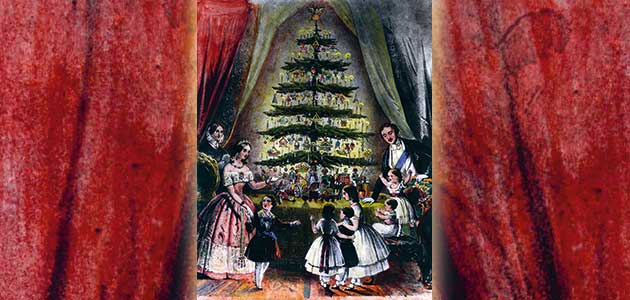Born leader: Joseph Jones’s Thought for the week
‘There was something irresistible about the new celebrations.’

The problem with a modern Quaker Christmas – or perhaps the modern Quaker’s problem with Christmas – is threefold, it seems to me.
It begins, of course, with the knowledge that our beloved forbears shunned the season altogether. Christmas, no more of a holy day than the other 364, also had a pagan whiff to it. What was suspicious about ancient Yuletide lingers today in our righteous distaste for excess.
But then the Victorians, experts at repressing (if not eradicating) excess, seized hold of the festivities. In so doing they made Christmas the most important event of the year. Quakers could eschew the cards, carols and crackers, but there was something irresistible about the new celebrations. Victorians, often hard of nose and face, were unScrooged – a welcome, if temporary, hiatus. Peace on earth, goodwill to all, gifts for the poor… how could any Friend demur? It would be nice if all this mattered from January to November, but if someone hands you a pretty card extolling these virtues in twelfth month, it feels churlish to insist on an old testimony against times and seasons.
So here we are in a third muddy middle, welcoming the message of the moment but grieving its absence in the rest of the year – and still worried about all that consumption. Our support is partial. This is understandable, but ‘partial’ can be ‘half-hearted’. It’s no route to living adventurously.
I have no fix to this state of affairs, and perhaps it doesn’t need fixing. Adventurous living happens in all sorts of other ways. But is there anything we can root into that soggy ground? What of the Christmas origin story, the birth of Jesus – ‘the reason for the season’, as many steeplehouses are currently proclaiming? The cards sometimes have angels on them, or a child born of a virgin, tricky issues for a modern Quaker. We don’t know that any of that is true. What we do know is that, sometime back then, a man arrived in Galilee saying things that changed how the world worked. Not everything he said has – yet – been put into practice, but incredibly, miraculously, we’ve worked on some of it. When Paul the apostle says that ‘you are all one in Christ Jesus’ he had learned that there was something in each of us more essential than whether we are Jewish or Greek, enslaved or free, or even male or female. Every one of us is valuable, and is worthy of care and consideration. Modern human rights might not be a biblical concept, exactly – and other cultures may have other routes to them – but Jesus is how we got there. Our belief that everyone matters comes through him. Britain, a long way from completing this project, is yet not the same without Bethlehem. That, surely – Christian, Quaker, or otherwise – is why Christmas is for everyone.
This year’s retrospective is from the 1970s. This is partly arbitrary, and partly me wanting to share Will Warren’s piece, which shows what change is possible in fifty years. But to be honest it’s also because I turn fifty myself soon, and was drawn to the period. Fifty, egad! In another two or three decades I’ll be old enough to be a real Quaker.
Joe is editor of the Friend.
You need to login to read subscriber-only content and/or comment on articles.
